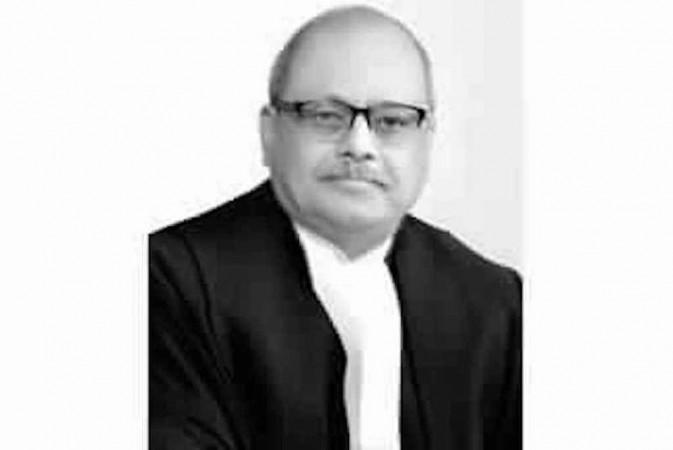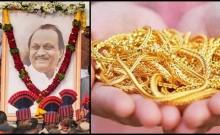
Former Supreme Court judge Pinaki Chandra Ghose is set to become the first Lokpal of India. His name was earlier recommended for the post and the same was cleared by a high-level selection committee, which met on Friday, March 15.
"His name has been finalised," the Hindu quoted a top official as saying. Sources also told the daily that other Lokpal members had also been decided. The committee comprised Chief Justice of India Ranjan Gogoi, Lok Sabha Speaker Sumitra Mahajan and jurist Mukul Rohatgi and was chaired by Prime Minister Narendra Modi.
However, leader of Opposition in Lok Sabha and Congress member Mallikarjun Kharge, who is also part of the committee, did not attend the meeting after expressing his displeasure on being invited as "special invitee." He had refused to attend the meetings for the same reason earlier as well.
While the appointment may not be looked at too kindly by Kharge or the Congress, the decision to appoint a Lokpal and Ghose's name had been welcomed by social activist Anna Hazare. "I welcome the decision of appointing the country's first Lokpal. The people's movement for it, going on for 48 years now, has finally won," the Press Trust of India quoted Hazare as saying earlier.
Who is Pinaki Chandra Ghose?
- Born on May 28, 1952, Pinaki Chandra Ghose is a retired judge of the Supreme Court.
- He comes from a renowned family from the northern provinces of the City of Calcutta and is the son of Late Justice Sambhu Chandra Ghose, who was the former Chief Justice of Calcutta High Court.
- Ghose went to St Xavier's College in Kolkata and obtained a degree in law and attorney-at-law from Calcutta University.
- In 1976, he was enrolled as an advocate with the Bar Council of West Bengal.
- In 1997, he was appointed as a judge of the Calcutta High Court, where he served for several years.
- Ghose was transferred to Andhra Pradesh High Court in June 2012 and in December he was appointed as the Chief Justice of the same court.
- He was named as the judge of the Supreme Court in March 2013 and retired in May 2017.
- One of Ghose's most talked-about verdicts is that of the prosecution of Tamil Nadu chief minister J Jayalalithaa and her friend V K Sasikala for misusing public funds.
- Colleagues are known to look up to Ghose and Bikash Ranjan Bhattacharya, a Calcutta High Court and Supreme Court advocate, once said that he was someone of a friendly nature and a cool temperament. "He was extremely fast in delivery of judgment and had an extremely good memory. He was an outstanding judge," the Indian Express quoted Bhattacharya as saying.
- Ghose is currently a member of National Human Rights Commission.
What does a Lokpal do?
The word "Lokpal" is derived from the sanskrit word "loka" meaning people and "pala" that means protector or caretaker. As a whole, the word Lokpal means "protector of people."
A Lokpal, an idea known to have have come from Sweden, is an anti-corruption ombudsman or authority who works for public interest. The Lokpal has jurisdiction over all Members of Parliament and central government employees in cases of corruption. The Lokpal has powers over the CBI and can also give directions to the agency in terms of search and seizure operations.
The Lokpal has powers of confiscation of assets, proceeds, and any benefits from corrupt means and can recommend transfer or suspension of public servant connected to a case of corruption. The Lokpal is also responsible for judging whether a case of corruption is genuine or fake and can impose fines on a fake complaint. In case the case cannot be proved legally, it can even order a short jail time.
While a Lokpal enquires into corruption charges at a national level, the same responsibility falls on the Lokayukta on the state level.










